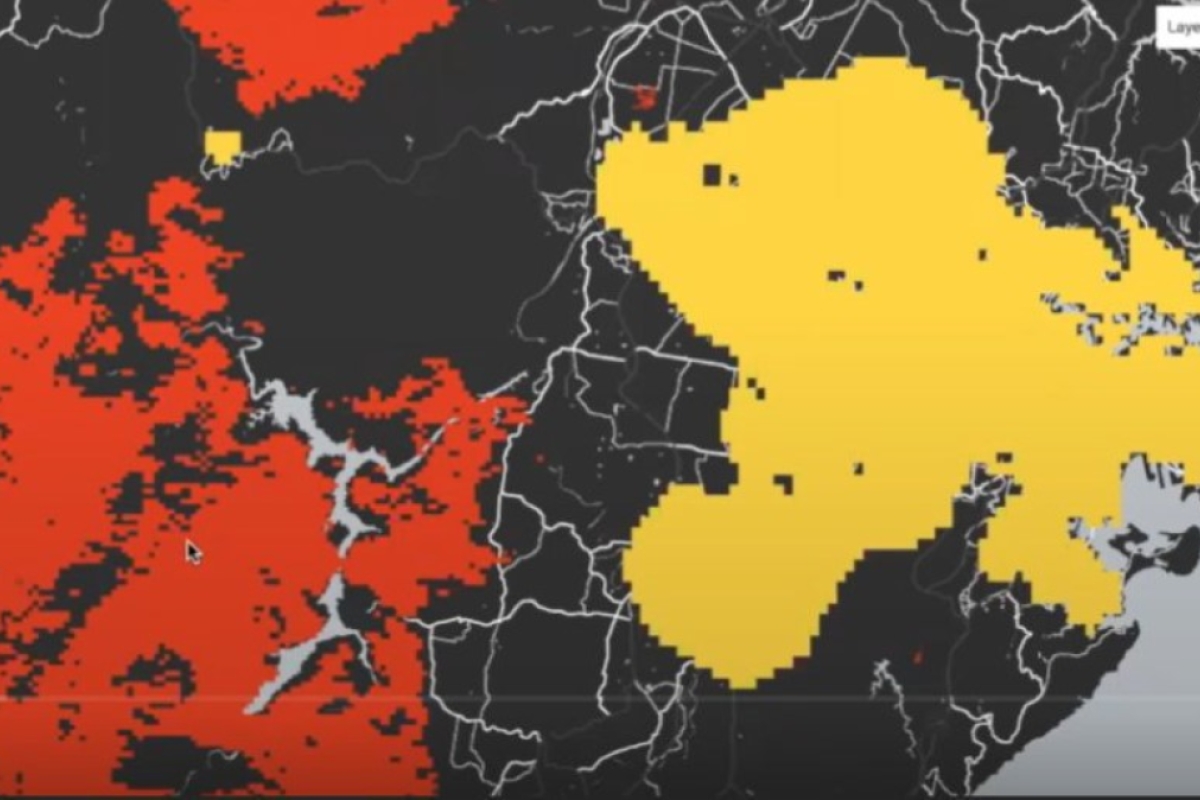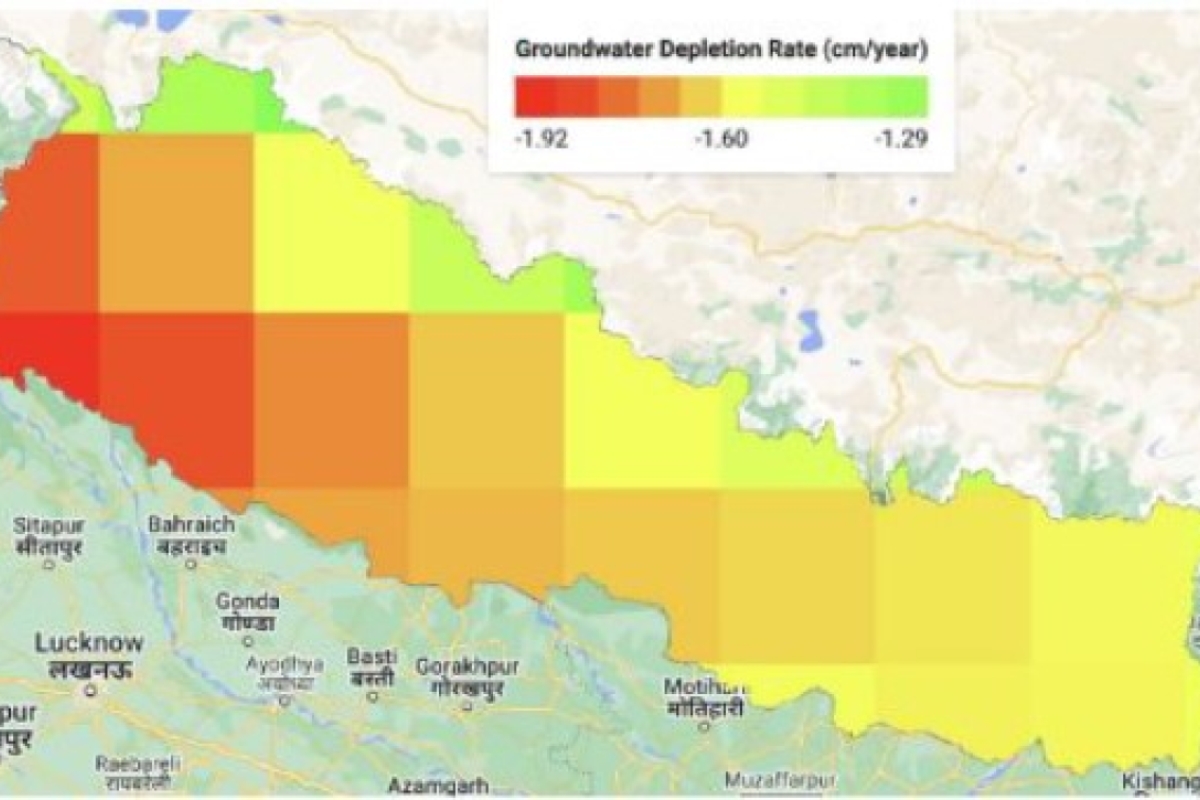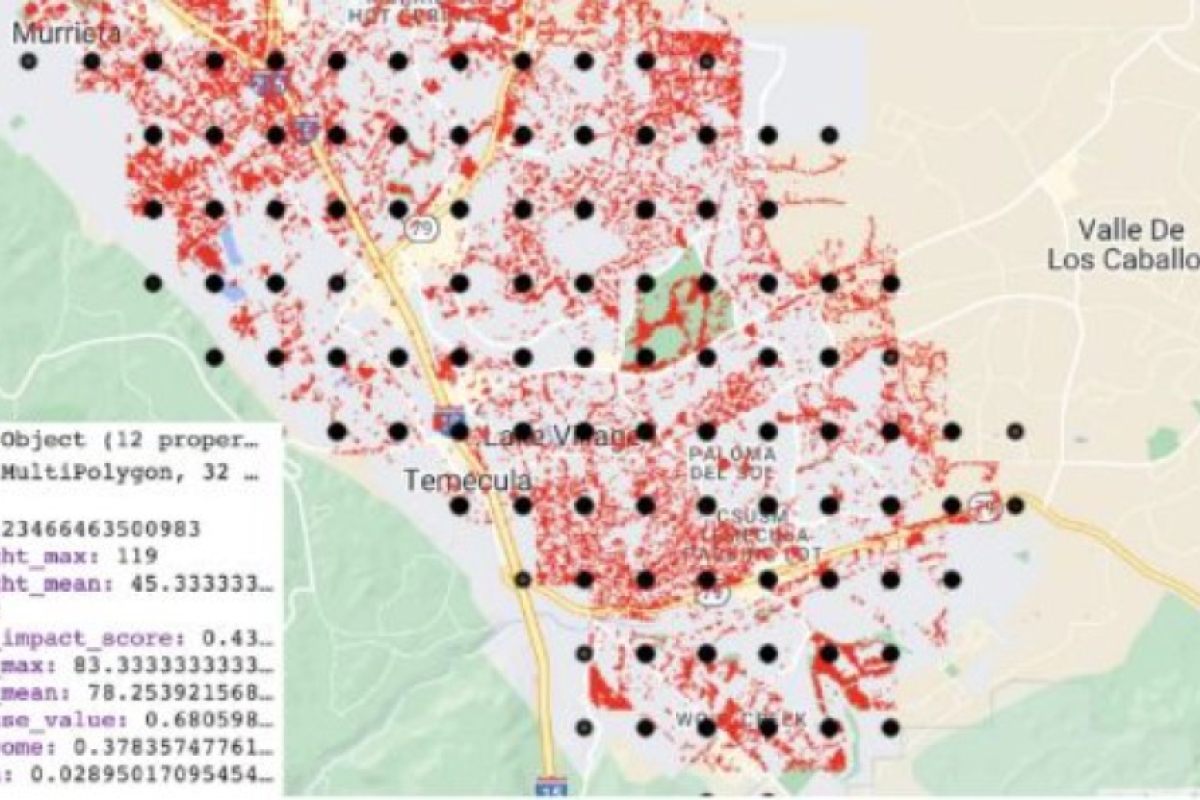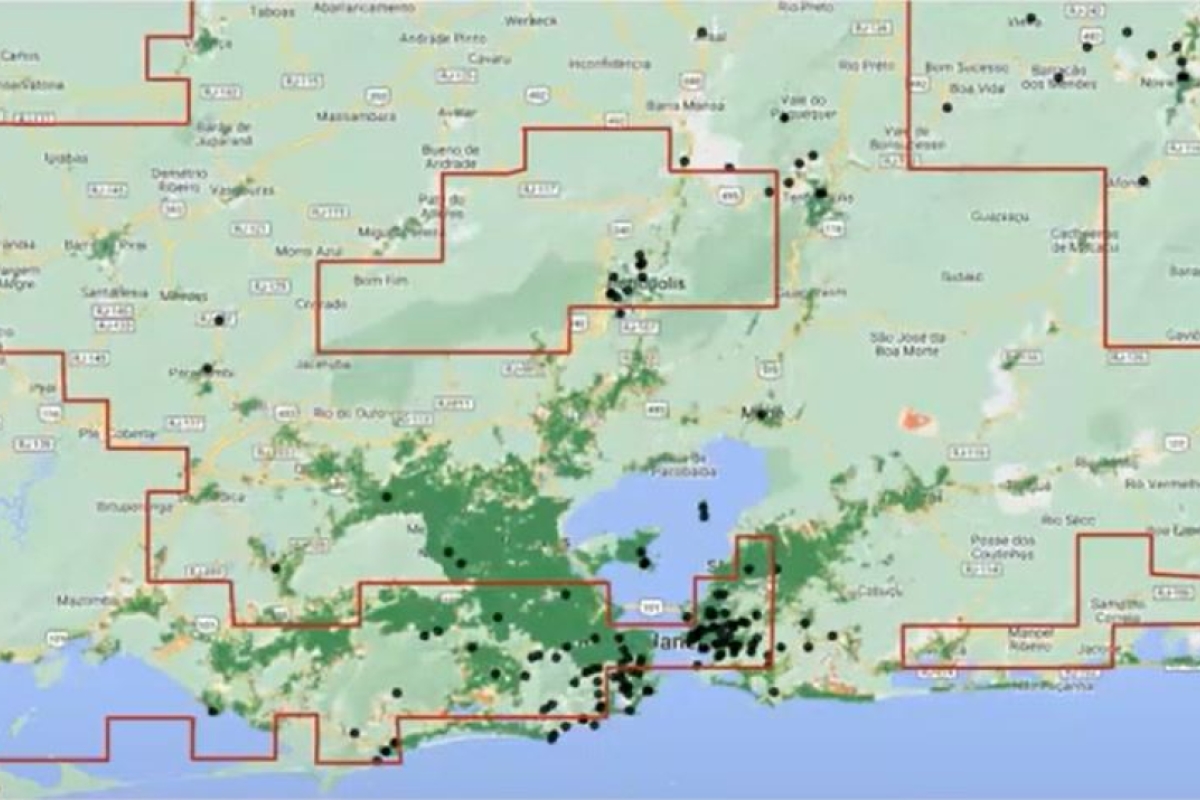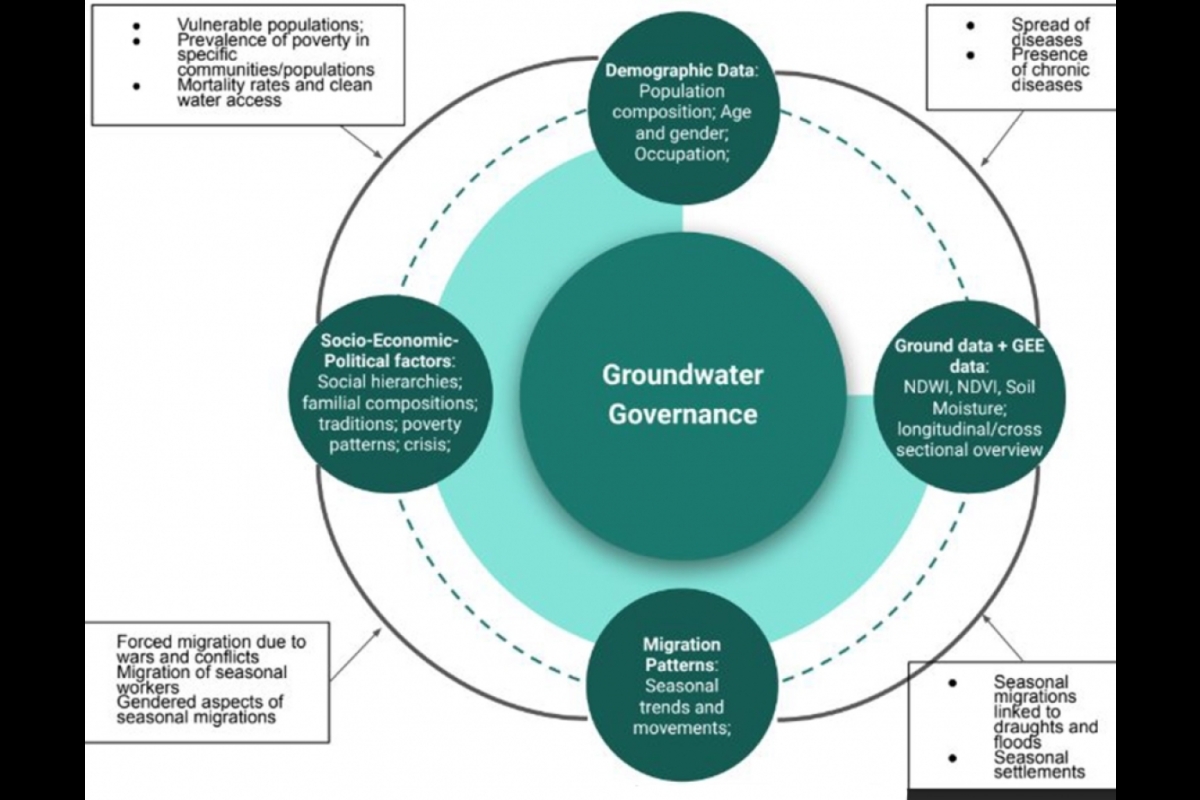Hackathon gathers global students to tackle social, environmental issues
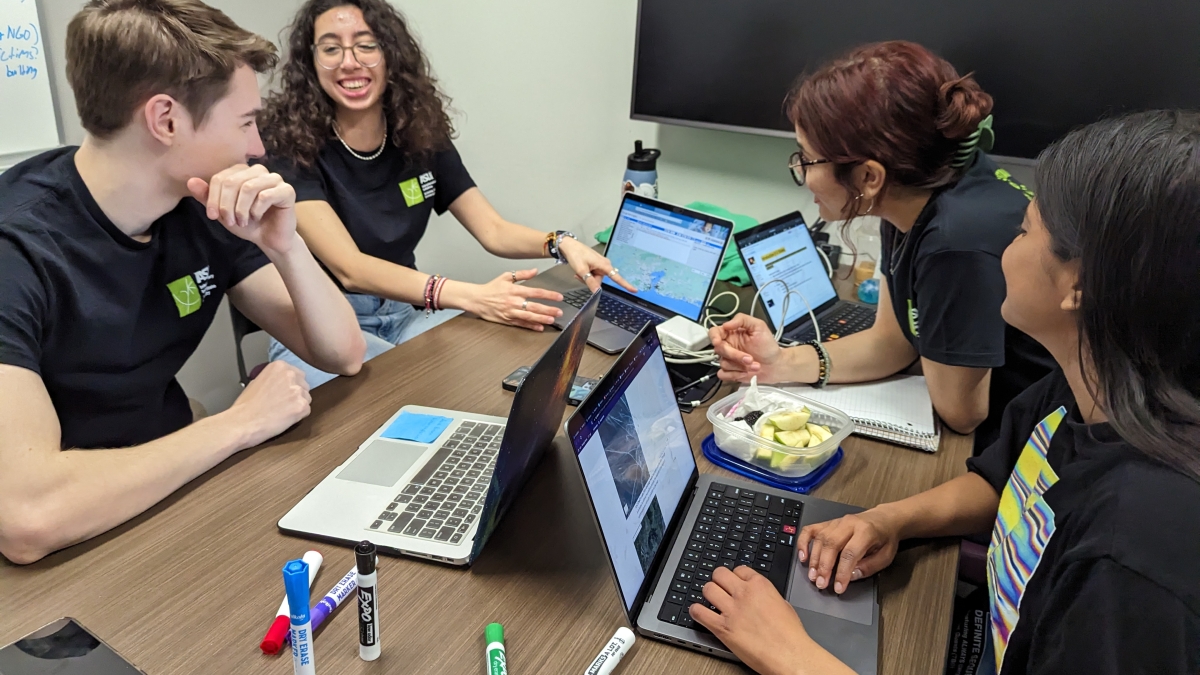
Participants worked in teams to explore how satellite Earth observations and remote sensing technology from space can be used to better understand and address social inequities, sustainable development and environmental justice issues. The student teams were highly interdisciplinary and frequently consisted of both undergraduate and graduate students working together. Photo courtesy Interplanetary Initiative/ASU
Nearly 150 students from around the world convened in person and virtually in March to take part in the Interplanetary Initiative pilot project SpaceHACK for Sustainability Hackathon at Arizona State University.
Participants worked in teams to explore how satellite Earth observations and remote sensing technology from space can be used to better understand and address social inequities, sustainable development and environmental justice issues. The student teams were highly interdisciplinary and frequently consisted of both undergraduate and graduate students working together. These teams could choose to focus on one of three tracks, all grounded in ongoing ASU faculty research:
Climate Impacts on Brazilian Favelas: Leveraging space satellite data to assess worsening natural disasters disproportionately impacting marginalized communities in Brazil.
Sustainable Groundwater Usage in Nepal: Seeking to understand if groundwater can be accurately measured using space assets, providing the opportunity for enacting public policy around governance of clean water access.
Wildfire Risk and Social Disparity at the Wildland Urban Interface: Monitoring wildfires from space to help better understand fire risk inequities and social disparity on Earth.
Participants came from nine countries and seven other universities, including Harvard, Yale, Northern Arizona University, University of Nepal and Universidad Tecnica Particular de Loja -UTPL in Ecuador. Seventy-one percent of participants were undergraduate students, and 29% were graduate students. While hackathons are often associated with computer science or engineering fields, nearly 20% of participants were enrolled in non-STEM majors.
One of the winning teams in the Nepal track conducted a ground data analysis comparing plant water, soil moisture and vegetation data to actual measurements of groundwater levels.
“Using Google Earth Engine and space-based data to inform sustainable development research was a novel concept for us,” said team member Prashamsa Thapa, PhD student in innovation in global development.
Their hackathon submission found a positive correlation between the measured groundwater data and a satellite-derived index, using IR frequency bands. The group then validated those findings for two different districts in Nepal, suggesting the replicability of the algorithm. Their group finally proposed a governance model for sustainable groundwater access that included satellite data measurements, but also socioeconomic factors, migratory patterns and demographics.
Thapa explained how her group plans to continue the research they started during the hackathon: “Specifically, we aim to develop a research paper that can provide a comprehensive understanding of the issue and contribute to the existing literature on sustainable agriculture and groundwater management.”
The winning team in the Brazil track identified a strong correlation between previous landslide locations, precipitation and land slope. These high-risk regions were shown to coincide with high population density. The team then proposed using Facebook and Whatsapp as platforms for an early-warning system and public outreach to nongovernmental organizations for the creation of emergency shelters in lower-risk areas for use during extreme weather.
Tasha Coelho, a sophomore earth and space exploration major and ASU Space Ambassador, joined the hackathon to better understand the workflow of how satellite data can benefit communities on Earth. She was part of the winning team in the Brazil track.
“We learned how to import satellite data and manipulate code on Google Earth Engine, allowing us to layer satellite data, train an AI model to categorize land types, etc. We found several compatible, valuable datasets online that could be superimposed onto the satellite data, revealing correlations. Additional research led us to understand the social issues involved, and, having witnessed the positive impact of social-media groups in other scenarios, we proposed that as part of our solution as well,” she said.
“My group had such a fun time throughout the hackathon. I truly believe our amazing group cohesion was directly responsible for our successes. There were these moments of being collectively mind blown upon discovering what was possible with Google Earth Engine,” Coelho added.
“The space hackathon was such an amazing opportunity to work with students of all majors on real-world problems. This work is the embodiment of what developing solutions should be: bringing together individuals of all backgrounds to solve problems. The hackathon was very beginner-friendly. I didn't come in with much experience with satellite data, but the tutorials and my peers were very helpful. Overall, I had a lot of fun learning more about GIS (geographic information systems) and how I can use it to solve problems in communities around the world,” said Kennedy Gourdine, a sophomore in sustainability, whose team worked in the wildfire track.
The students’ projects were judged by a panel of academic and industry leaders, with deep knowledge and experience dealing with their track. The climate and Brazil track was judged by Mary Jane Parmentier from ASU’s School for the Future of Innovation in Society and Luciano Oliveira, corporate strategy senior principal at Boeing. The sustainable groundwater and Nepal track was judged by Nalini Chhetri from the School for the Future of Innovation in Society and Kerri Rittschof, director of data science and analytics at ASU Library. The fire and poverty track was judged by Genevieve Biggs, program director of the Wildfire Resilience Initiative for the Moore Foundation, and Ann Kapusta, executive director of The Space Frontier Foundation.
The event was hosted by the ASU Interplanetary Initiative, in partnership with the Unit for Data Science at Hayden Library, the School for the Future of Innovation in Society and Planet Labs. Planet Labs and ASU have recently expanded their partnership to focus on building global-scale solutions for sustainability.
More Science and technology

Google grant creates AI research paths for underserved students
Top tech companies like Google say they are eager to encourage women and members of historically underrepresented groups to…

Cracking the code of online computer science clubs
Experts believe that involvement in college clubs and organizations increases student retention and helps learners build valuable…
Consortium for Science, Policy & Outcomes celebrates 25 years
For Arizona State University's Consortium for Science, Policy & Outcomes (CSPO), recognizing the past is just as important as…
